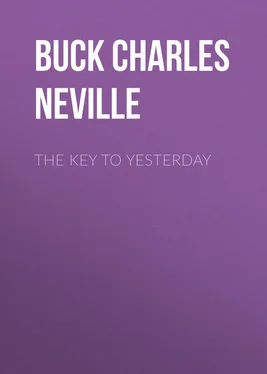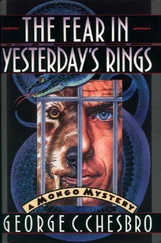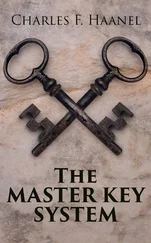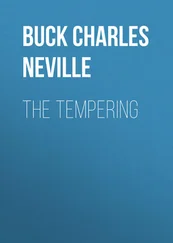Charles Buck - The Key to Yesterday
Здесь есть возможность читать онлайн «Charles Buck - The Key to Yesterday» — ознакомительный отрывок электронной книги совершенно бесплатно, а после прочтения отрывка купить полную версию. В некоторых случаях можно слушать аудио, скачать через торрент в формате fb2 и присутствует краткое содержание. ISBN: , Жанр: foreign_prose, foreign_antique, foreign_language, на английском языке. Описание произведения, (предисловие) а так же отзывы посетителей доступны на портале библиотеки ЛибКат.
- Название:The Key to Yesterday
- Автор:
- Жанр:
- Год:неизвестен
- ISBN:http://www.gutenberg.org/ebooks/33759
- Рейтинг книги:3 / 5. Голосов: 1
-
Избранное:Добавить в избранное
- Отзывы:
-
Ваша оценка:
- 60
- 1
- 2
- 3
- 4
- 5
The Key to Yesterday: краткое содержание, описание и аннотация
Предлагаем к чтению аннотацию, описание, краткое содержание или предисловие (зависит от того, что написал сам автор книги «The Key to Yesterday»). Если вы не нашли необходимую информацию о книге — напишите в комментариях, мы постараемся отыскать её.
The Key to Yesterday — читать онлайн ознакомительный отрывок
Ниже представлен текст книги, разбитый по страницам. Система сохранения места последней прочитанной страницы, позволяет с удобством читать онлайн бесплатно книгу «The Key to Yesterday», без необходимости каждый раз заново искать на чём Вы остановились. Поставьте закладку, и сможете в любой момент перейти на страницу, на которой закончили чтение.
Интервал:
Закладка:
Miss Buford raised her large eyes. With a winter’s popularity behind her, she felt aggrieved to hear mentioned names that she did not know. Surely, she had met everybody.
“Who is Mrs. Bedford?” she demanded. “I don’t think I have ever met her. Is she a widow?”
Bellton laughed across his consommé cup. “Of the modern school,” he enlightened. “There were ‘no funeral baked meats to furnish forth the marriage feast.’ Matrimonially speaking, this charming lady plays in repertoire.”
“What has become of Jack Spotswood?” The older Miss Preston glanced up inquiringly. “He used to be everywhere, and I haven’t heard of him for ages.”
“He’s still everywhere,” responded Mr. Bellton, with energy; “everywhere but here. You see, the papers were so busy with Jack’s affairs that they crowded Jack out of his own life.” Mr. Bellton smiled as he added: “And so he went away.”
“I wonder where he is now. He wasn’t such a bad sort,” testified Mr. Cleaver, solemnly. “Jack’s worse portion was his better half.”
“Last heard,” informed Mr. Bellton, “he was seen in some town in South America – the name of which I forget.”
Señor Ribero had no passport of familiarity into local personalities, and he occupied the moment of his own conversational disengagement in a covert study of the face and figure beside him. Just now, the girl was looking away at the indolently stirring curtains with an expression of detachment. Flippant gossip was distasteful to her, and, when the current set that way, she drew aside, and became the non-participant.
Ribero read rightly the bored expression, and resolved that the topic must be diverted, if Miss Filson so wished.
“One meets so many of your countrymen in South America,” he suggested, “that one might reasonably expect them to lose interest as types, yet each of them seems to be the center of some gripping interest. I remember in particular one episode – ”
The recital was cut short by the entrance of Steele and Saxon. Ribero, the only person present requiring introduction, rose to shake hands.
The attaché was trained in diplomacy, and the rudiments of diplomacy should teach the face to become a mask when need be, yet, as his eyes met those of Saxon, he suddenly and involuntarily stiffened. For just a moment, his outstretched hand hesitated with the impulse to draw back. The lips that had parted in a casual smile hardened rigidly, and the eyes that rested on the face of Steele’s celebrity were so intently focused that they almost stared. The byplay occupied only a moment, and, as Ribero had half-turned from the table to greet those entering at his back, it escaped the notice of everyone except Saxon himself. The newcomer felt the momentary bar of hostility that had been thrown between them and as quickly withdrawn. The next moment, he was shaking the extended hand, and hearing the commonplace:
“Much pleased, señor.”
Ribero felt a momentary flash of shame for the betrayal of such undiplomatic surprise, and made amends with added courtesy when he spoke.
The artist, dropping into his seat at the side of Miss Filson, felt a flush of pleasure at his position. For the instant, the other man’s conduct became a matter of negligible importance, and, when she turned to him with a friendly nod and smile, he forgot Ribero’s existence.
“Mr. Ribero,” announced Mr. Bellton, “was just about to tell us an interesting story when you two delinquents came in. I’m sure he still has the floor.”
The diplomat had forgotten what he had been saying. He was covertly studying the features of the man just beyond Miss Filson. The face was turned toward the girl, giving him a full view, and it was a steady, imperturbable face. Now, introduced as raconteur, he realized that he must say something, and at the moment, with a flash of inspiration, he determined to relate a bit of history that would be of interest at least to the narrator. It was not at all the story he might have told had he been uninterrupted, but it was a story that appealed to his diplomatic taste, because he could watch the other face as he told it and see what the other face might betray. This newcomer had jarred him from his usual poise. Now, he fancied it was the other’s turn to be startled.
“It was,” he said casually, “the narrowest escape from death that I have seen – and the man who escaped was an American.”
As Saxon raised his eyes, with polite interest, to those of the speaker, he became aware that they held for him a message of almost sardonic challenge. He felt that the story-teller was only ostensibly addressing the table; that the man was talking at him, as a prosecutor talks at the defendant though he may direct himself to the jury. The sense that brought this realization was perhaps telepathic. To the other eyes and ears, there were only the manner of the raconteur and the impersonal tone of generality.
“It occurred in Puerto Frio,” said the South American, reminiscently. He paused for a moment, and smiled at Saxon, as though expecting a sign of confusion upon the mention of the name, but he read only courteous interest and impenetrability.
“This countryman of yours,” he went on smoothly, his English touched and softened by the accent of the foreigner, “had indulged in the dangerous, though it would seem alluring, pastime of promoting a revolution. Despite his unscrupulous character, he was possessed of an engaging personality, and, on brief acquaintance, I, for one, liked him. His skill and luck held good so long that it was only when the insurgents were at the gates of the capital that a summary court-martial gave him the verdict of death. I have no doubt that by the laws of war it was a just award, yet so many men are guilty of peddling revolutions, and the demand for such wares is so great in some quarters, that he had my sympathy.” The speaker bowed slightly, as though conceding a point to a gallant adversary. It chanced that he was looking directly at Saxon as he bowed.
The painter became suddenly conscious that he was according an engrossed attention, and that the story-teller was narrowly watching his fingers as they twisted the stem of his sauterne glass. The fingers became at once motionless.
“He bore himself so undeniably well when he went out to his place against a blank wall in the plaza, escorted by the firing squad,” proceeded Señor Ribero evenly, “that one could not withhold admiration. The picture remains with me. The sun on the yellow cathedral wall … a vine heavy with scarlet blossoms like splashes of blood … and twenty paces away the firing squad with their Mausers.”
Once more, the speaker broke off, as though lost in retrospection of something well-remembered. Beyond the girl’s absorbed gaze, he saw that of the painter, and his dark eyes for an instant glittered with something like direct accusation.
“As they arranged the final details, he must have reflected somewhat grimly on the irony of things, for at that very moment he could hear the staccato popping of the guns he had smuggled past the vigilance of the customs. The sound was coming nearer – telling him that in a half-hour his friends would be victorious – too late to save him.”
As Ribero paused, little Miss Buford, leaning forward across the table, gave a sort of gasp.
“He was tall, athletic, gray-eyed,” announced the attaché irrelevantly; “in his eyes dwelt something of the spirit of the dreamer. He never faltered.”
The speaker lifted his sauterne glass to his lips, and sipped the wine deliberately.
“The teniente in command inquired if he wished to pray,” Ribero added then, “but he shook his head almost savagely. ‘No, damn you!’ he snapped out, as though he were in a hurry about it all, ‘Go on with your rat-killing. Let’s have it over with.’”
Читать дальшеИнтервал:
Закладка:
Похожие книги на «The Key to Yesterday»
Представляем Вашему вниманию похожие книги на «The Key to Yesterday» списком для выбора. Мы отобрали схожую по названию и смыслу литературу в надежде предоставить читателям больше вариантов отыскать новые, интересные, ещё непрочитанные произведения.
Обсуждение, отзывы о книге «The Key to Yesterday» и просто собственные мнения читателей. Оставьте ваши комментарии, напишите, что Вы думаете о произведении, его смысле или главных героях. Укажите что конкретно понравилось, а что нет, и почему Вы так считаете.











